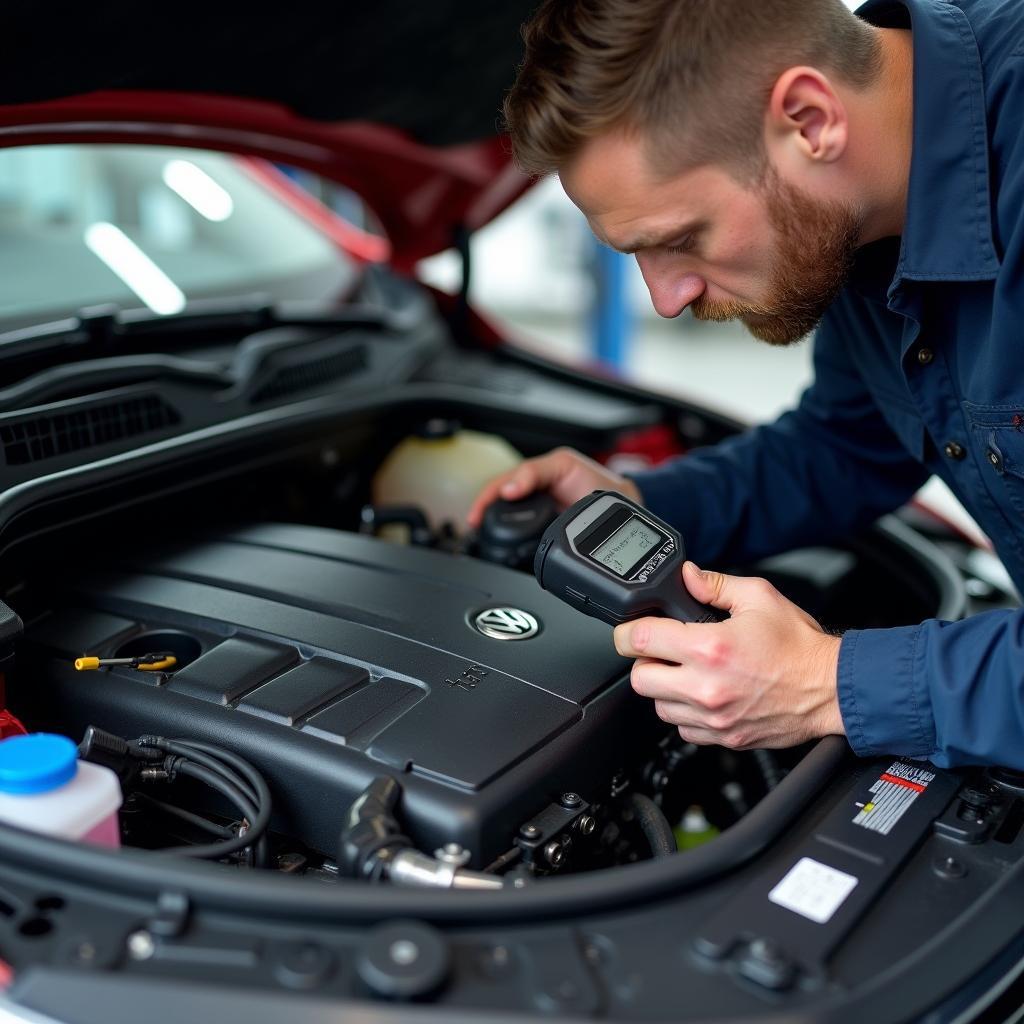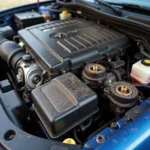TSI engines are synonymous with Volkswagen, representing advanced gasoline engine technology. They promise high performance alongside low fuel consumption. But what exactly does the abbreviation TSI stand for? And what should you pay attention to regarding maintenance and potential problems? This article provides a comprehensive overview of VW TSI engines.
The TSI technology (Turbocharged Stratified Injection) combines turbocharging and direct injection to ensure optimal combustion and efficiency. This means more power and less fuel consumption compared to conventional naturally aspirated engines. If you appreciate a dynamic driving style, the TSI engine is the ideal companion. Learn more about the advantages and specifics of TSI 1.2 problems.
What Does TSI Mean at VW?
As already mentioned, TSI stands for Turbocharged Stratified Injection. At its core, this means the engine is equipped with a turbocharger that increases air supply, thus boosting performance. Direct injection ensures that fuel is precisely injected into the combustion chamber. This combination allows for efficient combustion and thus lower fuel consumption. Professor Dr. Hans Müller, an expert in internal combustion engines, confirms in his book “Modern Drive Technology”: “TSI technology has revolutionized the development of gasoline engines and sets standards in terms of efficiency and performance.”
Advantages of TSI Engines
TSI engines offer a range of advantages: They deliver high performance over a broad RPM range, creating a sporty driving feel. At the same time, they impress with comparatively low fuel consumption and reduced emissions. This combination of performance and efficiency makes them a popular choice for many VW models. TSI engines particularly excel in city traffic and on the highway.
Common Problems with TSI Engines
Despite their advanced technology, TSI engines can also exhibit problems. These include, for example, issues with the timing chain, the turbocharger, or the high-pressure fuel pump. Direct injection can also sometimes lead to carbon buildup on the intake valves. Regular maintenance and using the correct engine oil are therefore essential. Looking for the right oil for your VW? The VW engine oil finder can help.
 VW TSI Engine: Maintenance and Issues
VW TSI Engine: Maintenance and Issues
Maintenance of TSI Engines
To ensure the longevity of your TSI engine, regular maintenance intervals must be observed. These include oil changes, spark plug replacement, and checking the timing belt or timing chain. Cleaning the intake valves may also be necessary if needed.
TSI Engines Compared
Compared to older engine technologies like FSI or MPI, TSI engines offer significantly improved performance and efficiency. The combination of turbocharging and direct injection allows for optimal combustion and thus lower fuel consumption. Learn about other VW technologies like VW cylinder deactivation.
TSI Engine FAQ
- What is the difference between TSI and TFSI? Essentially, it’s the same technology. The term TFSI is primarily used by Audi.
- What oil should I use for my TSI engine? It is important to use the manufacturer-recommended oil. Consult your owner’s manual or the VW engine oil finder for this.
- How often should I have the timing belt/timing chain replaced? Replacement intervals vary depending on the model and engine. Adhere to the manufacturer’s specifications.
Further Information
Interested in a used VW with a TSI engine? Check out our article on used VW Golf 7 Variant automatic. Or perhaps you’re looking for a sporty SUV? Then the white VW Tiguan R-Line might be right for you.
Conclusion
VW TSI engines offer an impressive combination of performance and efficiency. Regular maintenance and attention to potential problems help extend your engine’s lifespan and ensure an optimal driving experience. Feel free to contact us via our website if you need support with the maintenance or repair of your TSI engine. Our experts are available 24/7 to assist you.

